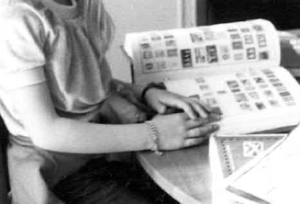
Talking about gifted kids – and giftedness more broadly – is challenging; I’ve already explored that tension a bit on this blog, and will continue to do so.
With that said, as much as I love Paula Prober’s alternative phrase rainforest mind to describe myself as an “excessively curious, creative, smart and sensitive adult,” gifted remains a specific and useful diagnostic term for kids who need differentiated attention and instruction in order to be successful in school.
I’m actually a fan of placing giftedness within the sphere of “learning differences”, as addressed by Special Education mandates in schools – meaning, teachers need to understand that a designation of gifted doesn’t simply mean the child is capable of more advanced work, but rather has a unique set of needs, dispositions, and potential challenges to address and work with. And that’s not even factoring in twice-exceptionality (i.e., other confounding challenges, including neurodiversity, anxiety, ADHD, etc.).
In this post, I’ll be sharing a bit about my own journey as a gifted kid navigating through a public school system in the United States. Hopefully, the chronological progression I’ve chosen here will make it clear how, despite best efforts by many, formal schooling eventually grew less and less tolerable for me.
As a younger child, I attended a local community preschool a couple of days a week and otherwise explored learning on my own and with my three siblings, with daily support from “Sesame Street” and “Mr. Rogers’ Neighborhood”. I don’t precisely recall learning to read, but it happened early and without effort. On the other hand, I DO remember the moment I knew I HAD to learn how to put my thoughts into writing: my mom was eager to get out the door to run an errand, but I wouldn’t stop bugging her with questions about how to spell various words. Eventually I learned how to navigate this on my own, and took off with emergent writing as well.
Kindergarten was basically a joy. I adored being in a bilingual (English-Spanish) classroom which emphasized play, music, art, friendship, and imagination. I don’t recall any sense of competition between kids at this point, other than an adult commenting once on how precisely I drew a tiny circle during an art project (without tracing). I got to practice the alphabet in both languages, and learn some basic terms in Spanish. (To this day, Spanish is my most fluent non-native language, despite never having lived in a Spanish-speaking country.)
First grade is when schooling challenges began to surface. Kids were suddenly expected to sit at their desks and listen quietly, and we were collectively punished for the misbehavior of a few naughty kids. Meanwhile, differences between our varying academic abilities were made stark: since I already knew how to read, write, and do basic math, I was given “next-grade-up” textbooks in each of these topics and asked to simply work on my own. Occasionally I was sent to other (older) classrooms to hang out for a while, but I mostly recall an increasing sense of isolation and separatism from my peers during core subject times. Thankfully, I had good friends in first grade and wasn’t socially anxious, so recess time allowed for plenty of connecting and play.
By second grade, I had tested into the district’s gifted program – but since this didn’t officially start until fourth grade, I distinctly recall teachers not being exactly sure what to do with me. I continued to be given separate textbooks and projects in core subjects, and was expected to simply learn and practice math, reading, and writing on my own, since I’d demonstrated proficiency using this “method” until then. On an emotional level, I unfortunately experienced relentless bullying that year, both from boys and from my supposed best girl-friends, and my anxiety skyrocketed. (Bullying of gifted kids merits its own post, so I’ll leave it at that for now.)
My parents met with my teacher to discuss having me skip third grade, but they collectively decided against it since they deemed me too “socially immature”. (One other child my age at my school was also offered the possibility of “grade promotion” – skipping third grade – which his parents said yes to. I can’t speak to J.’s emotional well-being, of course, but he’s a married professor with two kids at a prestigious university, so from outer appearances, things seem to have worked well for him.)
In third grade I had a lovely teacher (more of a friend than a teacher) and an awesome best friend, and my “bully friends” were placed in a different class – so, life was good. My teacher assumed I would understand everything easily (which I did), so I was simply allowed to read books, have fun, and enjoy existence. Because life at school was so stress-free, I actually looked happy in my school photo that year. On the down side, I wasn’t challenged academically at all, and was continuing to internalize the notion that learning “should” simply be easy and natural for me, as the “smartest kid in the class”.
Fourth grade was when the “upper grades” started at my school – as well as the formal gifted-and-talented education (GATE) program. For one full day a week, the district’s GATE kids were bused over to my school (we had the most available classrooms) and we would rotate through a series of highly enjoyable, hands-on classes with committed teachers. I was no longer “the smartest kid in the room” and I LOVED this. In retrospect, I’m embarrassed and frustrated that not all kids were given the privilege of such a refreshing break from “school as usual”. However, at the time, I was simply happy about the opportunity for myself.
In terms of regular academics, I recall trying to get everything done in school (including homework) so I could have the afternoon and evening free – in other words, schoolwork was for “getting done”, not for actually learning from or engaging with meaningfully.
In fifth grade, I was placed in a combination 4th/5th bilingual classroom, with the result that everything about our class was differentiated, so I don’t recall feeling like a sore thumb – plus, I got to make good new friends who were in the 4th grade, and listen to my teacher repeat instructions in Spanish (yahoo!). A notable exception to not feeling “different” was during spelling bees, when I would ruin the experience for the entire class by never getting a word wrong.
Sixth grade, the final year at my elementary school, was when everything fell apart. My teacher – Mr. F., a notoriously strict taskmaster – required all the “GATE kids” to make up the work we’d missed during the day when we were “gone”. Meanwhile, acceleration for gifted kids in Mr. F.’s class meant doing boring research projects (not of our own choosing) and writing lengthy reports about what we’d learned. I was mercifully allowed to sit in one of the “corral” desks and simply read all day, unless Mr. F. was yelling at me for not paying attention. Mr. F.’s teaching fell squarely into inexcusable territory when he randomly assigned all girls and boys in the class a “romantic partner”, and started a “fat club” for all the “overweight” kids, who would receive free McDonald’s lunches from him once a week. Clearly, my sixth grade experience was a disaster on all counts.
This is when my true depression began, and eventually I descended into a challenging path that derailed me from “traditional school” for years. However, since this post is lengthy enough for now, I’ll end by noting the biggest takeaways I can glean from my own overview of what “worked”(or not) for me as a gifted kid:
- Teachers obviously mattered – a lot. Other than Mr. F., I had a range of teachers who helped me feel comfortable and welcome to varying degrees in class. Some were friendlier than others, but what the best ones all had in common was not making me feel awkward, “different”, or penalized because of my giftedness. Socially-speaking, I was simply a member of the class.
- Friends also mattered, of course. Most of my best friends as a child weren’t designed “gifted”; rather, they were kind and fun girls who I bonded with and enjoyed spending time with.
- Being asked to work ahead in next-grade textbooks in math, reading, and spelling was better than being forced to sit and listen to material I already knew – but it also reinforced two challenging “truths”: 1) I was expected to simply learn things on my own (from books), and 2) I was positioned as an outlier needing to be “dealt with”.
- The weekly GATE program was an amazing life-saver for me personally – but ultimately a band-aid serving (mostly) privileged kids from more socio-economically advantaged homes; it almost certainly promoted many feelings of inequity and exclusion in the rest of the school.
- Speaking of pull-out programs, being forced to make up work that you’ve “missed” while attending a gifted class is obviously cruel and pointless – as is requiring gifted kids to do boring research reports “just because they can”, without bothering to inquire about authentic interests.
I’ve only briefly touched on the socio-emotional aspects of growing up gifted, which I’ll turn to in another post – and of course there were so many other factors, both positive and negative, that played a part in my experiences. For now, this overview at least provides a historical glimpse of what schooling looked like for me as a gifted kid who eventually dropped out of school time and again, and rejected formal schooling for years on end.
Thankfully, I’ve emerged as a rainforest-minded adult with a rich life, and all’s well that ends well – but I can only image the possibilities if my first years of schooling had been better tailored to meet my needs.
Copyright © 2020 by HalfoftheTruth.org. Please feel free to share with attribution.
